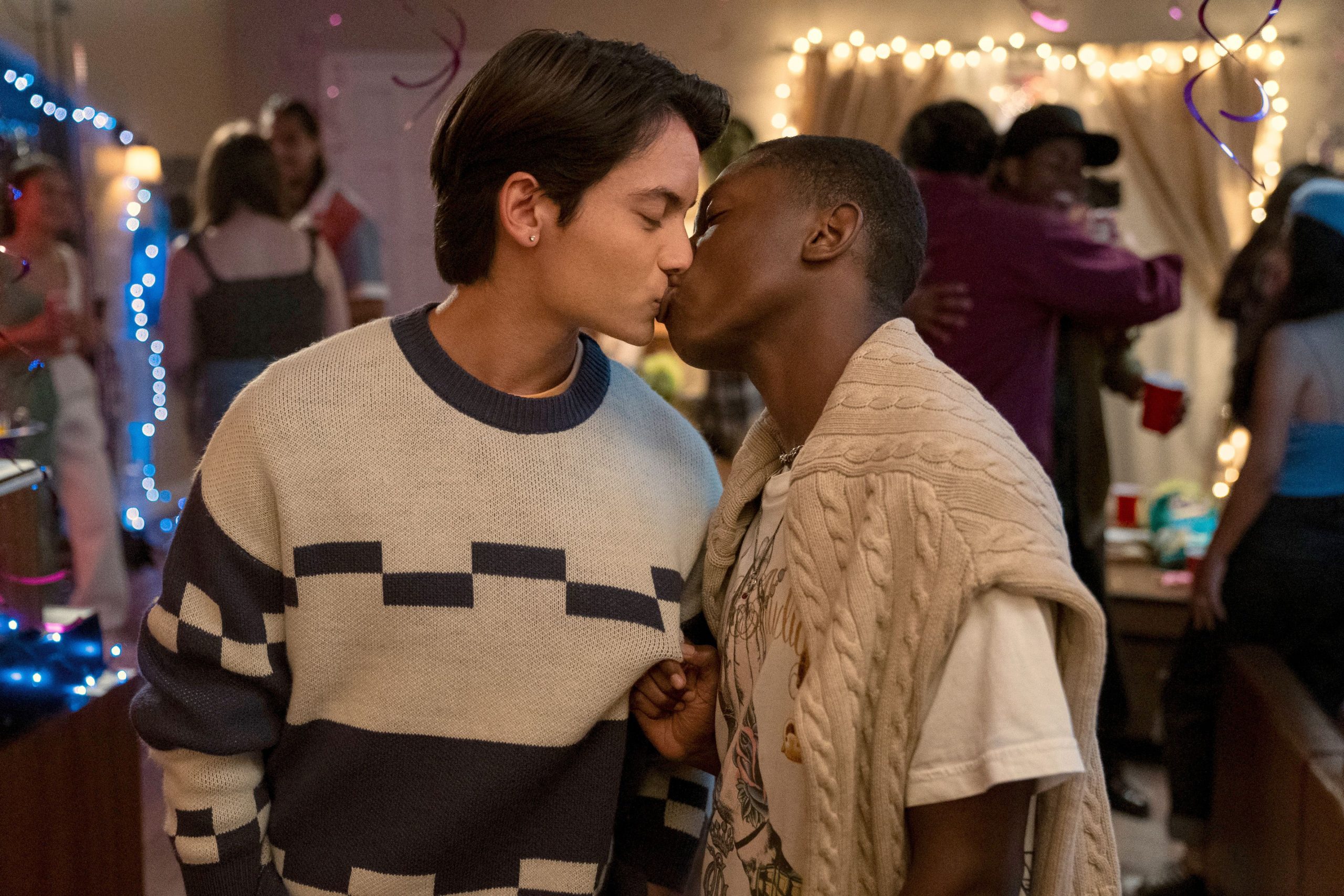Photo by Netflix
**This article contains spoilers for “Freeridge” on Netflix.**
Content warning: biphobia
Netflix released the show “On My Block” nearly 5 years ago. The show follows an all-POC friend group (including characters of Black, Latinx, and Asian ethnicities) as they navigate high school, relationships, struggles at home, and a treasure hunt. While it had its fair share of cringy moments, the show was funny and interesting enough for me to watch the first three seasons, so when Netflix released a spin-off that included queer representation, I knew I had to watch it.
If you’re a fan of “On My Block,” it’s hard to say if you’ll like “Freeridge.” The story takes place in the same town, includes some of the minor characters from “On My Block,” and mentions the same hidden treasure, but the plot is a lot more unclear. There are three main plotlines that track the lives of the friend group: two sisters struggling to get along in the face of their dad’s cancer, the group trying to get rid of a curse placed on them, and two friends who try to confront past issues with each other.
Overall, the show is interesting — I binged the whole thing while studying for two midterms (don’t judge me). However, we are not here to discuss the show’s quality. I only care about whether the queer representation measured up, and the final verdict is: kind of?
To start, I loved the fact that we had a queer couple who were never judged by their classmates — at least not for the sake of being queer. On the other hand, absolutely none of the queer couples lasted, but to be fair, none of the couples did.
They also include my least favorite trope: the cheating bisexual. This trope, especially when it involves the bisexual character cheating with someone of the opposite gender than their current partner, only perpetuates the stereotype that bisexual people are more likely to cheat because they have “more options.” Although, in this show, it’s hard to fully blame Cam, the bisexual cheater in question, because he does try to break up with his boyfriend, Andre, for months to no avail; this doesn’t make cheating excusable, but this change almost dodges the stereotype.
On the other side, Cam’s partner Andre is a good example of representation. While he is introduced as this clingy, annoying boyfriend, he’s actually super friendly and positive. He cares a lot about Cam and tries his best in the relationship, and we root for him when Cam cheats. It’s nice to see him realize he deserved better than Cam and watch him move on with someone else, even though it ends relatively quickly.
The most important queer storyline though, in my opinion, was that of Cam and his best friend, Demi, who he cheats on Andre with. The show slowly reveals that Demi deeply wounded Cam in the past, causing his trust issues. We learn that Demi told Cam that she could never be with a guy who’s dated a guy.
While he’s dating Andre, it is clear that Cam has a thing for Demi, which makes the comment that much more hurtful. He likes this girl, but because of what she said, he doesn’t know if he can forgive her, much less be with her.
The plotline takes on a much more frustrating tone because at first, Demi doesn’t own up to the comment. She instead repeatedly denies having ever said such a hurtful comment. During a heated argument, Cam expresses his feelings and how her comment harmed his view of himself and his sexuality. He was afraid to come out to Demi and even more scared to consider a romantic relationship with her after dating Andre.
After some time, Demi finally apologizes. After Cam forgives her, we see how important an apology can be. Demi is worth forgiving because she admits fault in her actions, is able to validate Cam’s reaction, and shows a willingness to change.
Cam never wanted to hold a grudge against Demi, but he did have to make her understand the impact of her comments and how they hurt him so deeply. Demi changed her opinion and is embarrassed having ever said what she did. Cam knows that, but he couldn’t go on with their friendship if she didn’t hold herself accountable.
While this show has its ups and downs for queer representation, it does have a lasting message about the impact of words and the importance of a heartfelt apology. Something said in a casual conversation could be something someone else holds onto for a long time, and sometimes it’s not possible to just move on. Apologies are important; they show that we can learn from our behavior and grow to be a better person, and they show respect to the person we harm. “Freeridge” effectively depicted that idea.
Credits:
Author: Maya Parra (She/Her)
Copy Editors: Brooke Borders (She/They), Bella (She/They)

